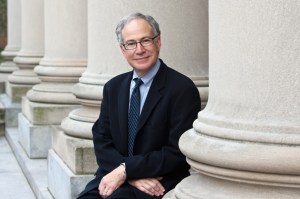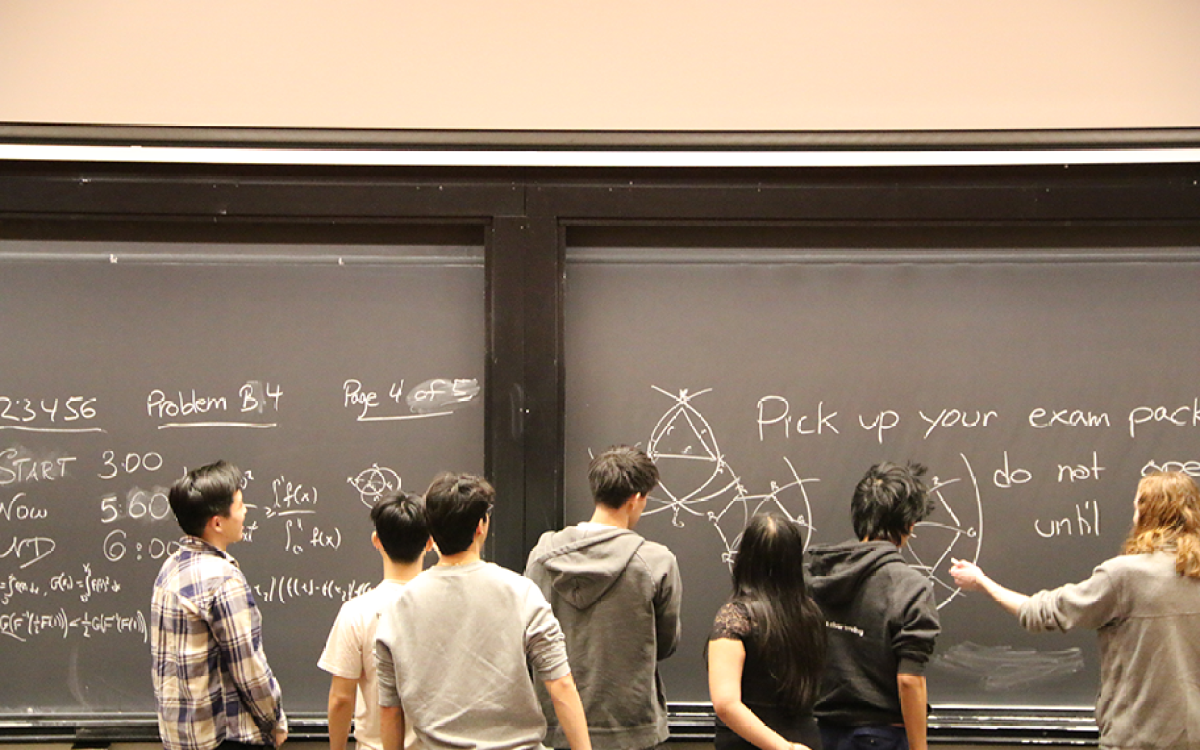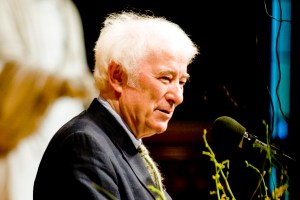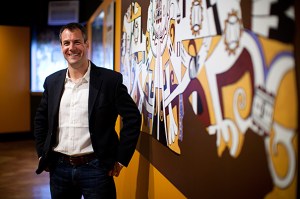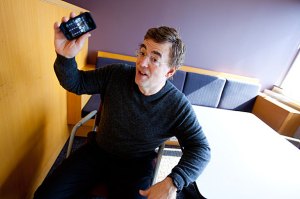Tag: FAS
-
Health
One million species, and counting
Just weeks after adding its millionth Web page, the online biology clearinghouse called the Encyclopedia of Life (EOL) has received a grant from the Sloan Foundation that will allow it to continue its mission of documenting every living plant and animal species on the globe.
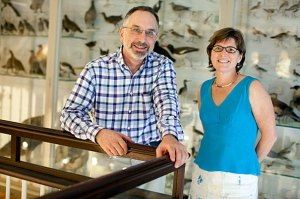
-
Science & Tech
Quantum computing, no cooling required
Using a pair of impurities in ultra-pure, laboratory-grown diamonds, researchers have created room-temperature quantum bits and have stored information in them for nearly two seconds — an increase of nearly six orders of magnitude over the life span of earlier systems. The work, described in the June 8 issue of Science, is a critical first…
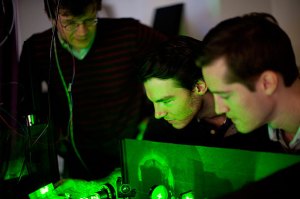
-
Science & Tech
Planet probe
In a paper published in the June 7 issue of Nature, Associate Professor Sujoy Mukhopadhyay presents evidence that the Earth’s deep mantle incorporated gas found in the solar nebula in the first few millions of years of the solar system’s formation.
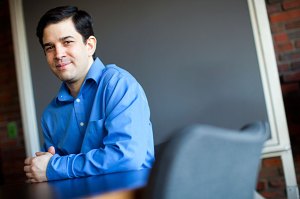
-
Health
The growing brain
As reported on June 7 in the journal Neuron, a team of researchers led by Professor Jeff Lichtman has found that just days before birth mice undergo an explosion of neuromuscular branching. At birth, the research showed, some muscle fibers are contacted by as many as 10 nerve cells. Within days, however, all but one…
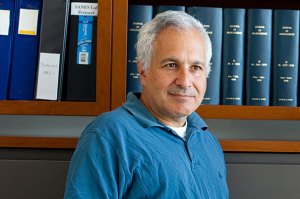
-
Health
Climbing out of hiding
For decades, scientists have been stymied in their attempts to better understand proboscis anole, a small lizard whose defining feature is a horn on its nose, because it appeared to be all but extinct — until now.
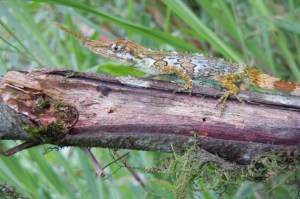
-
Health
The problem of pre-existing mutations
In a critical step that may lead to more-effective HIV treatments, Harvard scientists have found that, in a small number of HIV patients, pre-existing mutations in the virus can cause it to develop resistance to the drugs used to slow the progression of the disease.
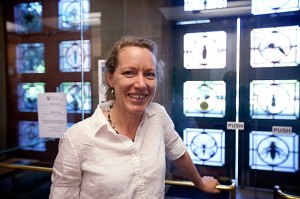
-
Health
Tracing the brain’s connections
A team of researchers is using a genetically modified version of the rabies virus to create the first comprehensive list of inputs that connect directly to dopamine neurons in two regions of the brain.
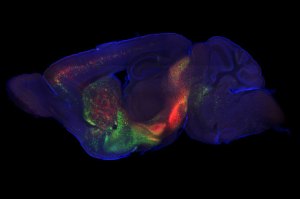
-
Health
‘Stealing’ life’s building blocks
Researchers have found that a parasitic flower takes large portions of its genetic code from its host, and that some genes borrowed by the flowers may even be functional. The surprising finding suggests that the process may convey some evolutionary advantage to the flowers.

-
Health
Probing the sparrow’s beastly past
A new study led by Harvard scientists shows that birds are, essentially, living dinosaurs, with skulls that are remarkably similar to those of their juvenile ancestors.

-
Science & Tech
Straight to the source
As described in an April 23 paper in the Proceedings of the National Academy of Sciences (PNAS), graduate students Eric Morrow and Carling Hay demonstrate the use of a statistical tool called a Kalman smoother to identify “sea level fingerprints” — telltale variations in sea level rise — in a synthetic data set. Using those…

-
Health
Signs of progress against PTSD
A decade after the start of the wars in Afghanistan and Iraq, studies have shown that the incidence of post-traumatic stress disorder (PTSD) among troops is surprisingly low, and a Harvard researcher credits the drop, in part, to new efforts by the Army to prevent PTSD, and to ensure that those who develop the disorder…
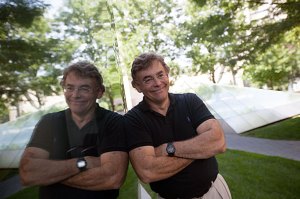
-
Campus & Community
Hoffman, Beerbohm win teaching prize
Physicist Jenny Hoffman and political theorist Eric Beerbohm have won the Roslyn Abramson Award, given annually to assistant or associate professors for excellence in undergraduate teaching.

-
Health
Vivid details
A landmark effort to sequence the genome of the butterfly Heliconius melpomene has revealed that it shares genes that control color patterns with two species that closely mimic its appearance — Heliconius timareta and Heliconius elevatus — suggesting that all three exchange genes as a result of occasional hybridization.
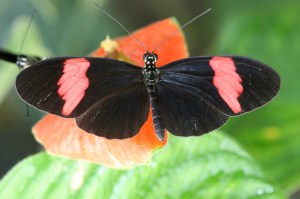
-
Science & Tech
New tool to battle illegal trade in animals
Harvard’s Center for Geographic Analysis will work with United Nations University on a system that will allow users to track and map wildlife crime, and how it is related to a host of socioeconomic factors.
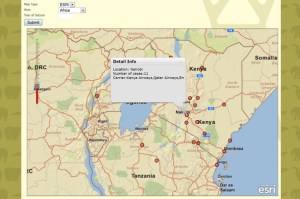
-
Health
Turing was right
Researchers at Harvard have shown that Nodal and Lefty — two proteins linked to the regulation of asymmetry in vertebrates and the development of precursor cells for internal organs — fit a mathematical model first described by Alan Turing six decades ago.

-
Science & Tech
Illuminating carbon’s climate effects
Harvard researchers compiled ice and sedimentary core samples collected from dozens of locations around the world, and found evidence that while changes in Earth’s orbit may have touched off a warming trend, increases in CO2 played a far more important role in pushing the planet out of the ice age.
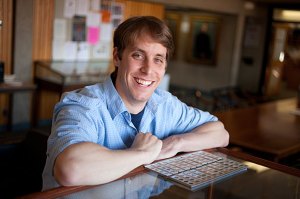
-
Science & Tech
Elegant entanglement
Harvard scientists have taken a critical step toward building a quantum computer — a device that could someday harness subatomic particles such as electrons to perform calculations far faster than the most powerful supercomputers.

-
Campus & Community
Stephen Greenblatt wins Pulitzer Prize
Stephen Greenblatt, the John Cogan University Professor of the Humanities, was awarded the 2012 Pulitzer Prize for general nonfiction for “The Swerve: How the World Became Modern.”

-
Science & Tech
You, revealed
“X-Rays of the Soul: Rorschach and the Projective Test,” at Harvard’s Collection of Historical Scientific Instruments, tells the story of the projective test movement and portrays the heady confidence that science could be used to extract and access the most human parts of human beings.
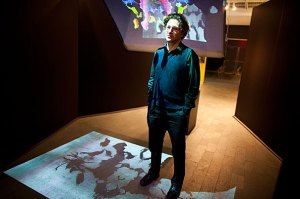
-
Campus & Community
A peek into Harvard classrooms
The Faculty of Arts and Sciences is launching a new video series, called “Harvard’s Great Teachers,” which will highlight Harvard’s world-class faculty and offer a sampling of the exciting and innovative teaching experienced by Harvard students.

-
Health
Rock sleuths
In one of the largest studies of its kind, Harvard researchers have found that carbon records from the mid-Neoproterozoic era can be “read” as a faithful snapshot of the surface carbon cycle between 717 million and 635 million years ago, a finding that directly challenges a decades-long belief of most scientists.
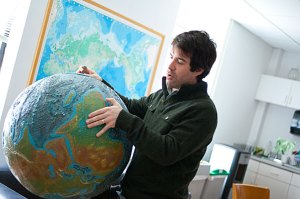
-
Science & Tech
Magnetism on the moon
A team of researchers from Harvard, MIT, and the Institut de Physique du Globe de Paris have proposed a surprisingly simple explanation for magnetic anomalies that have baffled scientists since the mid-1960s, suggesting they are remnants of a massive asteroid. As described in a paper published in Science, the researchers believe an asteroid slammed into…

-
Campus & Community
A peek at Harvard’s future
Maya Jasanoff and her faculty colleagues gathered at the Tsai Auditorium on Feb. 16 and March 7 to consider how the Faculty of Arts and Sciences (FAS) may look in a generation. The discussions were part of the Conversations @ FAS series, which this year asks some of Harvard’s leading scholars to imagine the faculty…
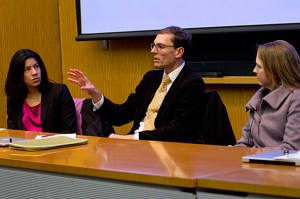
-
Campus & Community
FAS recognizes outstanding staff members
Faculty of Arts and Sciences Dean Michael D. Smith honored the 44 recipients of the third annual Dean’s Distinction awards in a ceremony and reception March 1 in the Faculty Room of University Hall.
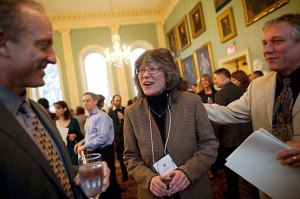
-
Health
Genetic mechanics
As reported in the online version of Nature Structural & Molecular Biology on Feb. 5, researchers have produced 3-D images of the protein system that works to repair DNA. The images reveal that the proteins can actually alter their shape in what amounts to a genetic “pat-down,” or a way for the mechanism to identify…
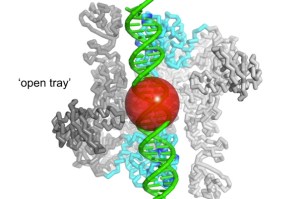
-
Health
In the genes, but which ones?
A team of researchers, led Harvard Professor David I. Laibson and Christopher F. Chabris of Union College, has found that virtually all claims that intelligence is associated with specific genes are wrong.

-
Campus & Community
GSAS Dean Allan Brandt to step down
Harvard Graduate School of Arts and Sciences Dean Allan M. Brandt, who pioneered a new approach to curricular development with the launch of the Graduate Seminars in General Education, announced Feb. 15 that he will step down as GSAS dean this spring owing to health considerations. He plans to return to the faculty when his…
